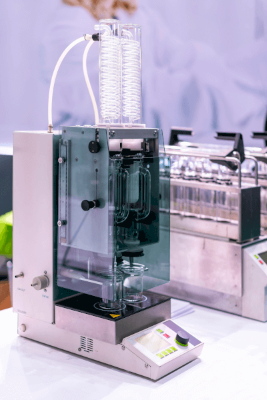What Is a Fractionator?

A fractionator is a sophisticated device designed to separate mixtures of liquids into individual components based on their boiling points. Utilizing the distillation process, it repeatedly condenses and evaporates the mixture to achieve separation and purification.
Uses of Fractionators
Fractionators play a vital role in industries such as petroleum refining and chemical manufacturing. They separate crude oil into usable products like gasoline, kerosene, and diesel, and are essential in producing high-purity gases from liquid air.
Principle of Fractionators
Operating on the principle of fractional distillation, fractionators differentiate liquids in a mixture by their boiling points. They are specifically designed to handle liquid mixtures, unlike general distillation processes that may apply to solids or gases as well.
Azeotropic mixtures, which cannot be completely separated due to their identical gas and liquid phase compositions, pose challenges that require specialized separation methods.
Structure of Fractionators
The core structure of a fractionator includes a multi-stage fractionator tube which allows for the efficient separation of components by boiling point. Various designs like the Bee-Glo, Hempel, and Schneider tubes cater to different separation needs, minimizing contamination and improving purity.
Other Information on Fractionators
1. Crude Oil Fractionation Process
The fractionation of crude oil involves heating the oil and then separating its components in a fractionating column based on their boiling points, from heavy residues like asphalt to lighter products like gasoline and naphtha.
2. Components Separated by Fractional Distillation of Crude Oil
Different sections of the fractionating column yield various petroleum products, with heavier components collected at the bottom and lighter ones, including valuable gases, at the top.